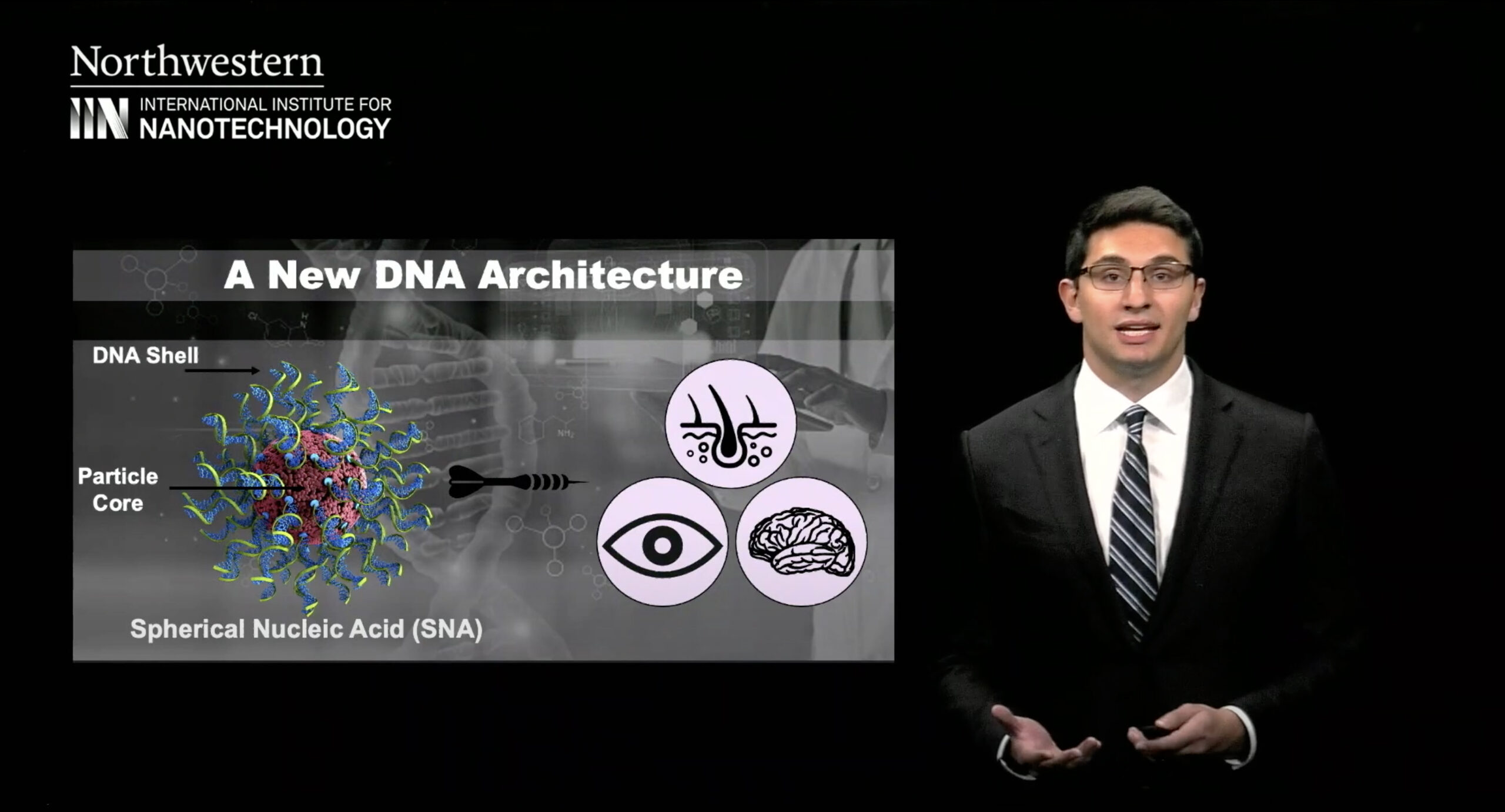Research
WATCH: What is precision nanomedicine?
December 15, 2021

Max Distler
The discovery of DNA changed our understanding of biology forever. When James Watson, Francis Crick, and Rosalind Franklin defined the structure of DNA and shared it with the world, they did more than reveal the building blocks of our genetic code — they opened the door to the development of powerful new medicines that have transformed the way we treat disease.
In this video, Max Distler, a PhD candidate in Chemistry at Northwestern, introduces the concept of precision nanomedicine. Researchers in this field use short snippets of DNA and RNA as medicines to flip genetic switches and correct or even eliminate diseases.
Conventional medicines are often unable to reach the organs and tissues that matter, breaking down in the patient’s body before they can cause a therapeutic effect. However, spherical nucleic acids (SNAs) — a synthetic form of DNA and RNA developed by the Mirkin Group at Northwestern — have vastly different properties from naturally found DNA, making them a promising platform for the development of targeted, highly effective nanomedicines.
You’ll learn how precision nanomedicine is creating exciting new treatment possibilities, from skin and eye conditions to glioblastoma, one of the most aggressive forms of brain cancer.
Research into precision nanomedicine is made possible through the generosity and vision of donors like Ronald and JoAnne Willens.